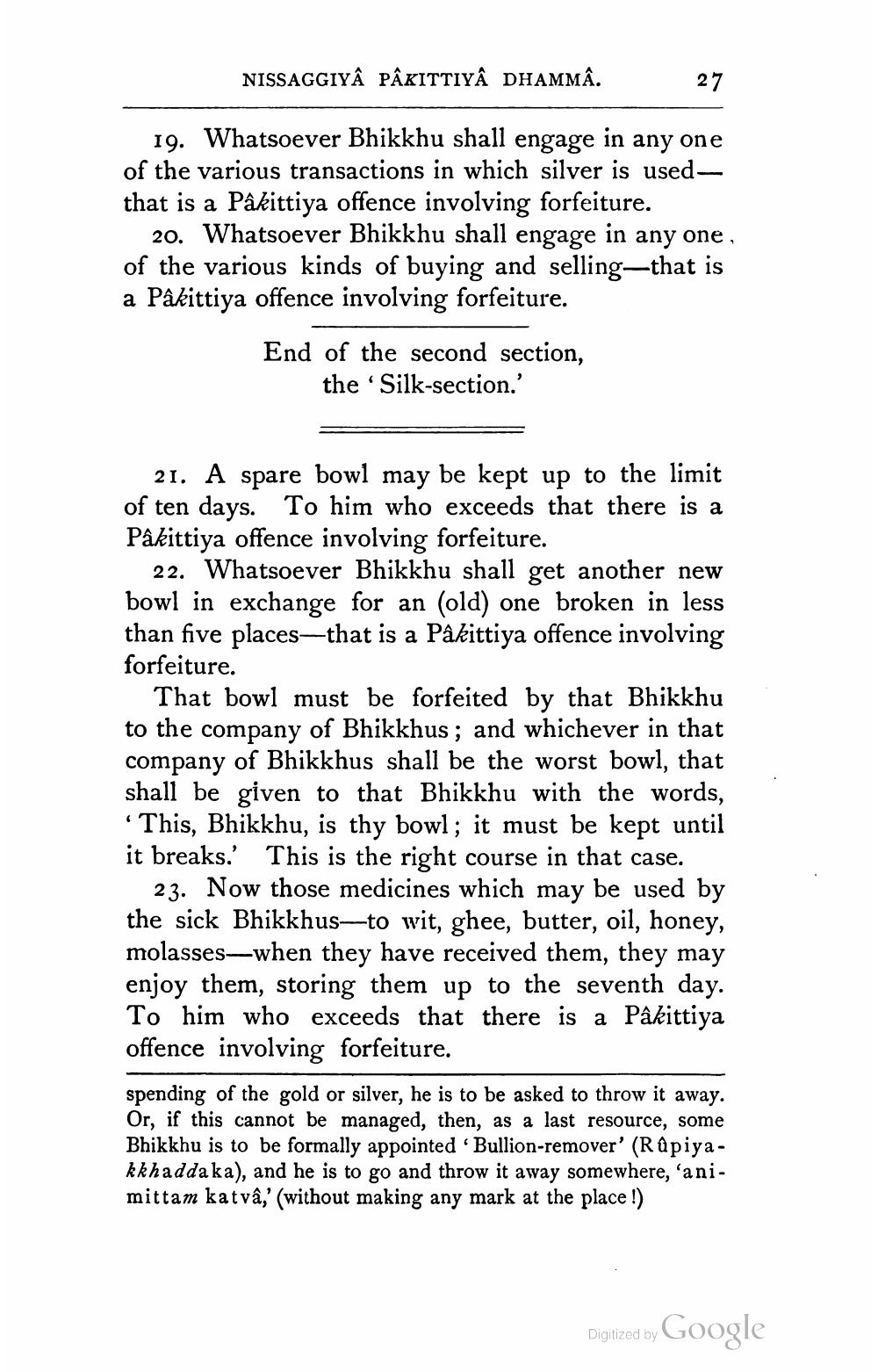________________
NISSAGGIYÂ PÂKITTIVÂ DHAMMÂ.
27
19. Whatsoever Bhikkhu shall engage in any one of the various transactions in which silver is used that is a Pâkittiya offence involving forfeiture.
20. Whatsoever Bhikkhu shall engage in any one, of the various kinds of buying and selling—that is a Pâkittiya offence involving forfeiture.
End of the second section,
the Silk-section.'
21. A spare bowl may be kept up to the limit of ten days. To him who exceeds that there is a Pâkittiya offence involving forfeiture.
22. Whatsoever Bhikkhu shall get another new bowl in exchange for an (old) one broken in less than five places—that is a Pâkittiya offence involving forfeiture.
That bowl must be forfeited by that Bhikkhu to the company of Bhikkhus; and whichever in that company of Bhikkhus shall be the worst bowl, that shall be given to that Bhikkhu with the words, *This, Bhikkhu, is thy bowl; it must be kept until it breaks. This is the right course in that case.
23. Now those medicines which may be used by the sick Bhikkhus—to wit, ghee, butter, oil, honey, molasses—when they have received them, they may enjoy them, storing them up to the seventh day. To him who exceeds that there is a Pâkittiya offence involving forfeiture.
spending of the gold or silver, he is to be asked to throw it away. Or, if this cannot be managed, then, as a last resource, some Bhikkhu is to be formally appointed Bullion-remover' (Rûpiya - kkhaddaka), and he is to go and throw it away somewhere,'animittam kat vâ,' (without making any mark at the place !)
Digitized by Google




